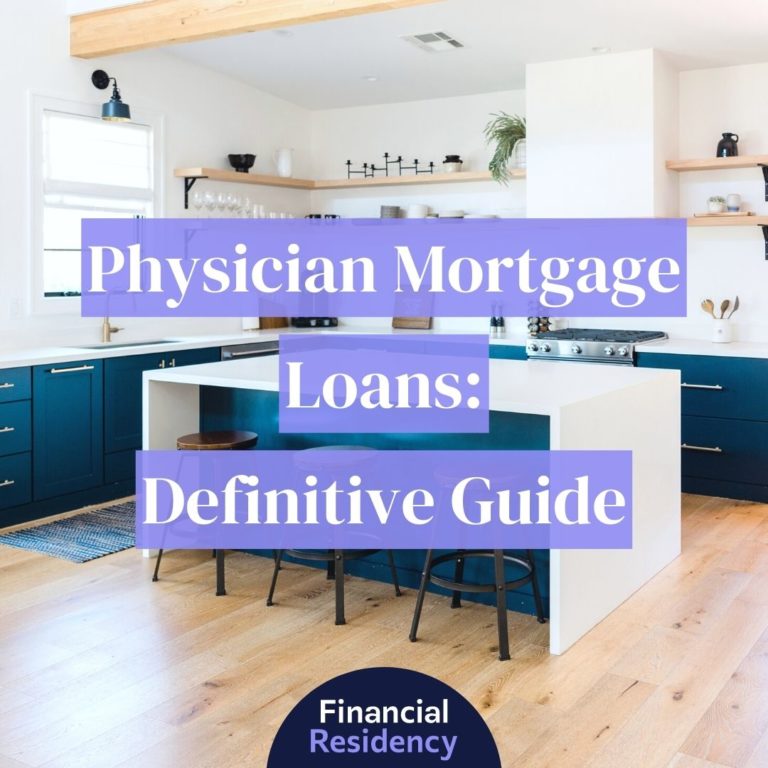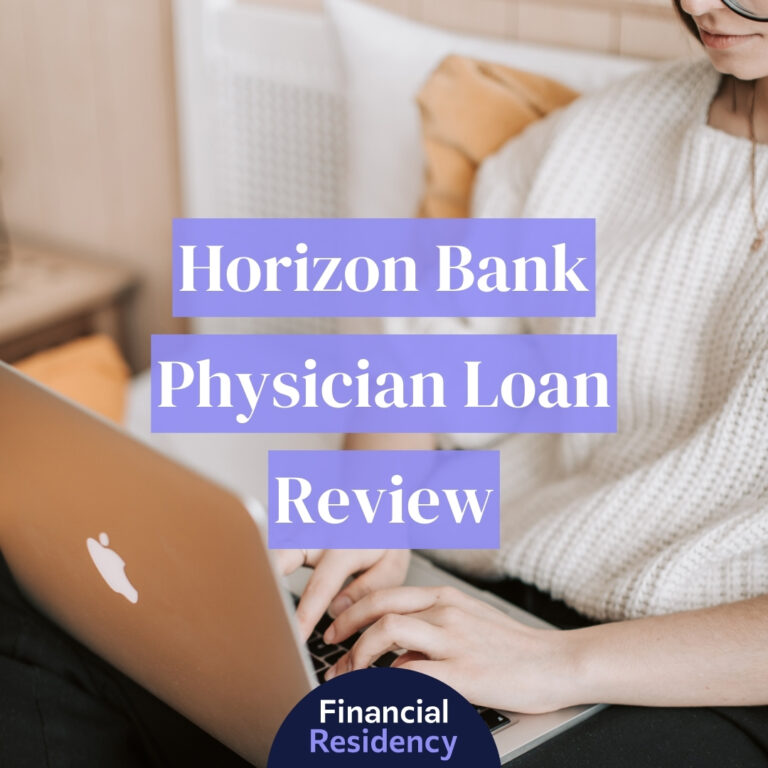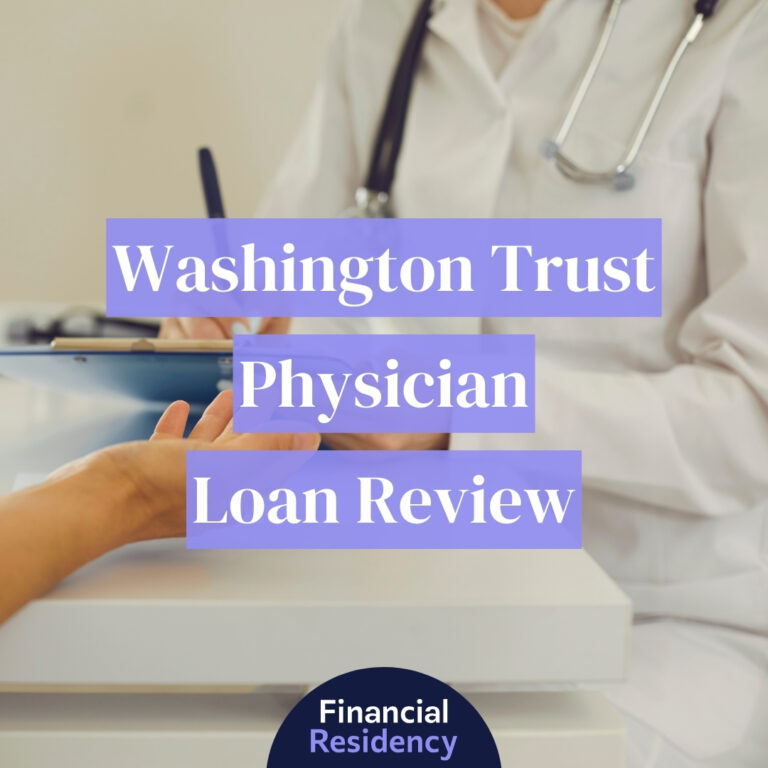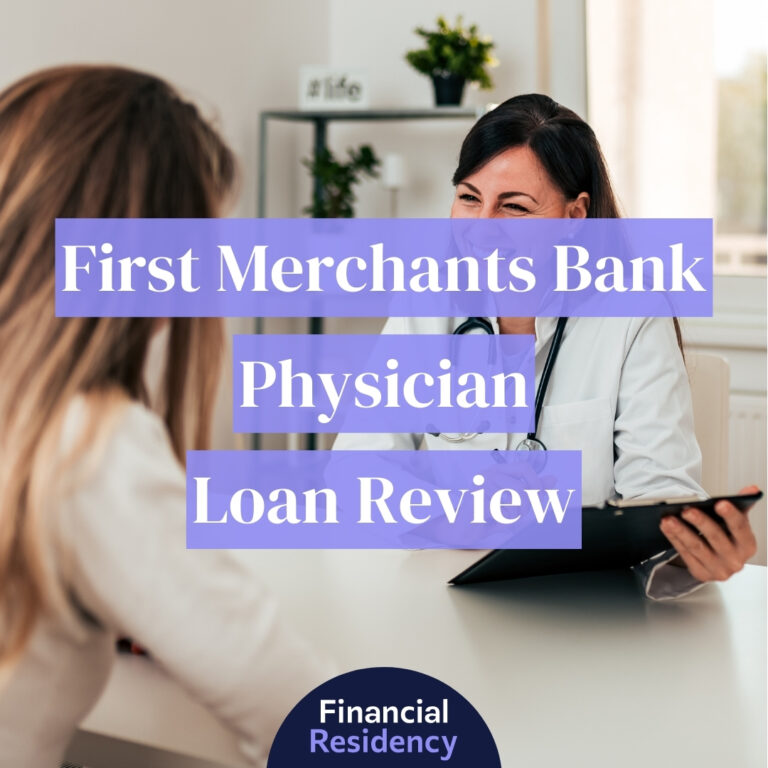Whether you’re in the middle of your residency program or well into your career as an attending, a physician mortgage loan in Virginia can help your dream of homeownership become a reality.
Virginia is a state that many physicians are choosing to call home, with over 25,400 doctors practicing medicine in the Old Dominion.
As the Birthplace of our Nation, Virginia continues to have millions of residents calling it their home each year.
Virginia can offer its residents everything from amazing weather to beautiful scenery and delicious food. It also happens to offer top educational choices, world-renowned hospitals, and access to incredible healthcare.
If you’re ready to get started with the physician mortgage loan in Virginia, then you’ll find several preferred lenders who are ready to get you closer to homeownership.
11 Best Virginia Physician Home Loan Lenders
Here are the top physician mortgage loan lenders in VA:
- BMO Bank
- Bank of America
- Evolve Bank & Trust
- First Horizon Bank
- First National Bank
- Fulton Bank
- Huntington Bank
- KeyBank
- TD Bank
- Truist
- US Bank
Discover The Best Lenders in Virginia Answer just a few questions about your career, where you're buying, and how much you want to borrow. Our service will then show you the exact programs you're eligible for from vetted physician loan specialists who will guide you through every step of the process – obligation-free!
1. BMO Bank
- BBB Grade: A+
- JD Power Score: 805
The Physicians’ Mortgage Program is BMO Bank’s unique home financing option for Medical Doctors (MD), Doctors of Dental Surgery (DDS), Doctors of Dental Medicine (DDM), and Doctors of Osteopathic Medicine (DO).
All applicants must be currently licensed and practicing as a resident, fellow, or physician. Loans may be used to purchase or rate/term refinance a 1-2 unit property, single-family home, condominium, or townhouse that will be used as your primary residence.
BMO offers three financing options in all Virginia:
- 100% financing up to $1 million
- 95% financing for $1 – $1.5 million
- 90% financing for $1.5 – $2 million
It does not require private mortgage insurance (PMI). It will also be flexible in its debt-to-income (DTI) calculations, which may make it easier for physicians with significant student loan debt to qualify.
Many early-career medical professionals graduate from school with little to no documented work history due to their years of training.
BMO Bank does not impose income history requirements instead, it will approve borrowers with employment contracts dated within 90 days of closing.
All the standard fixed and adjustable-rate mortgage products are available.
Learn More:
2. Bank of America
- BBB Grade: A+
- JD Power Score: 791
Bank of America’s Doctor Loan Program is open to medical professionals with an MD, DDS, DMD, OD, DPM, or DO degree.
Medical residents and fellows are also eligible. Researchers and professors are not eligible, however. All applicants must be employed in salaried positions.
Medical doctors and residents who are starting new employment opportunities can qualify as long as their employment contract is dated within 90 days of closing.
Later start dates of up to 90 days may be accommodated for applicants who have sufficient cash reserves to cover all debt obligations between closing and the start of employment.
All loans have a cash reserve requirement of 4 to 6 months, but the exact requirement will depend on your loan amount.
Deferred student loan payments will be excluded from DTI calculations.
Bank of America offers the following down payment options:
- 3% on loans up to $850,000
- 5% on loans up to $1 million
- 10% on loans up to $1.5 million
- 15% on loans up to $2 million
All down payment options waive PMI. Bank of America does not process online physician loan applicants so you’ll have to call or visit a branch in person to apply.
Learn More:
3. Evolve Bank & Trust
- BBB Grade: A+
- JD Power Score: N/A
Evolve Bank & Trust extends its physician loan program to more medical professionals than the two aforementioned providers. Its program is open to the following:
- Chiropractor (DC)
- Dental Surgeons (DDS)
- Dentists (DDM)
- Medical Doctors (MD)
- Nurse Anesthetist
- Nurse Practitioner (NP)
- Optometrist (OD)
- Pharmacists (RPH)
- Physician’s Assistant (PA)
- Podiatrist (DPM)
- Veterinarians (DVM)
Eligible medical professionals can qualify for 100% financing on loans up to $1 million, 95% financing on loans up to $1.25 million, 90% financing on loans up to $1.5 million, or 85% financing on loans up to $2 million.
Employment contracts dated within 90 days of closing are accepted as proof of employment.
Learn More:
4. First Horizon Bank
- BBB Grade: A+
- JD Power Score: 825
First Horizon Bank doesn’t advertise much information about its medical private banking offers because it wants applicants to work directly with a Client Services Relationship Manager but we do know a few key details.
MDs, DOs, OMSs, and DPMs are eligible for the program. It’s important to note that many programs extend financing to dentists, but this program does not.
All borrowers will be required to open a checking account with the bank upon applying for the loan if they don’t already have one. You’ll also need to enroll in AutoPay with this account.
The bank also has a higher minimum credit score requirement than other physician loan providers. You’ll need at least a 670 score to qualify for financing.
Learn More:
5. First National Bank
- BBB Grade: A+
- JD Power Score: 801
First National Bank provides home financing options tailored to the needs of doctors with MD, DO, DDS, DVM, DMD, or DPM degrees. Interns, residents, and fellows are also eligible for the program.
Borrowers may not have to put money down for loans up to $1.25 million, but the program provides up to $2 million with low down payment options.
Fixed and adjustable rate mortgage options are available. Like other physician loan programs, underwriting will be flexible by considering the unique financial situation of many physicians.Loans may be used to purchase or refinance a primary, secondary, vacation, or new construction home. Single-family homes, townhouses, and condominiums are eligible property types.
First National Bank is particularly good at helping borrowers prepare for what to expect from the home-buying process. If you’re interested in applying, the bank recommends you have the following documents readily available:
- Purchase agreement for chosen property, if available
- Most recent pay stubs going back at least 30 days
- At least 2 months of most recent bank statements
- Two years of W2s
- Two years of tax returns
- Current driver’s license or photo ID
You can schedule an appointment in person or begin applying online.
Learn More:
6. Fulton Bank
- BBB Grade: NR
- JD Power Score: 814
Fulton Bank extends its physicians’ mortgage to people with medical doctorates, such as physicians, pharmacists, dentists, and veterinarians.
The program provides 100% financing on loans up to $1.5 million, 95% financing on loans up to $2 million, and 90% financing on loans up to $2.5 million––making it one of the most generously funded loan programs on this list.
All down payment options exclude private mortgage insurance. Student loans deferred for 12 months or more won’t be considered in debt-to-income calculations.
Borrowers can purchase or refinance their home up to 90 days before they start their new job with a signed employment contract.
Loans can be structured as 15 or 30-year fixed-rate mortgages. You can also choose 5/6, 7/6, 10/6, or 15/6 adjustable-rate mortgages.
Gift funds from immediate family members will be accepted. The seller may even pay up to 6% of closing costs or you can prepay your mortgage to lower your rate.
Learn More:
7. Huntington Bank
- BBB Grade: A+
- JD Power Score: 821
Huntington Bank’s physician loan program is open to medical professionals with an MD, DO, DDS, DVMM, or DMD degree. Borrowers will need to provide sufficient income history or an employment contract with qualifying income and cash reserves. The reserve requirements will depend on the loan amount.
Borrowers can secure up to $1 million without a down payment. Larger loan amounts will require a small down payment. Loans up to $1.25 million will require at least 5% down and loans up to $2 million will require at least 10% down.
Loans may be used to purchase a new home or refinance an existing home. Like other physician loan programs, it is restricted to primary residences. Cash-out refinances are limited to $250,000 cash with all other funds going toward paying off debt.
Fixed and variable interest rate mortgages are available through this program.
Learn More:
8. KeyBank
- BBB Grade: A+
- JD Power Score: 809
KeyBank’s medical professional mortgage program is geared toward the needs of physicians and dentists. Interns, residents, fellows, doctors, dentists, clinical professors, researchers, and managing physicians with a current license and one of the following degrees can apply:
- MD
- DO
- DPM
- DDS
- DMD
The program does not impose age limits, but retired physicians aren’t eligible.
Exact down payment requirements will vary depending on the borrower’s geographic location, but the program will provide up to 100% financing.
PMI is never required through this program.
The program has a maximum loan amount of $3.5 million, which makes it the physician program with the highest maximum loan amount on this list.
Fixed and variable interest rate products are available.
Loans may be used to purchase or rate-term refinance an owner-occupied primary residence or second home.
Acceptable properties include attached or detached single-family homes, townhouses, and condominiums.
Learn More:
9. TD Bank
- BBB Grade: A+
- JD Power Score: 837
TD Bank designed its Medical Professional Mortgage program for practicing physicians, dentists, licensed residents, and fellows, including private practitioners who have owned their practice for at least two years.
Loans may be used to purchase a single-family home, condominium, or property in a planned unit development. In some markets, loans may be used to purchase a property in a co-op. Fixed and adjustable rate mortgage options are available.
Borrowers have the following down payment options, all of which exclude PMI requirements:
- Zero money down on loans up to $750,000
- 5% on loans up to $1.25 million
- 01% on loans up to $1.5 million
Underwriters and loan officers are trained to work with early-career physicians. They’ll use flexible DTI ratio guidelines to ensure the program is accessible to medical professionals even with significant student loan debt.
Upcoming residents and physicians starting a new job can qualify with a signed employment contract.
Learn More:
10. Truist
- BBB Grade: A+
- JD Power Score: N/A
Truist does physician loans a little differently than other providers on this list. Physicians who are still within the first 10 years of their career can qualify for 100% financing options. Physicians who have been practicing for 10-15 years will need to put down at least 10% to qualify.
The program has a maximum loan amount of $2 million. It will provide financing to the following degrees:
- MD
- DO
- DPM
- DDS
- DMD
Residents are also eligible. Student loan debt is considered, but the bank doesn’t specify exactly how. We do know that they intend to be more lenient than conventional loan programs.
Learn More:
11. U.S. Bank
- BBB Grade: B+
- JD Power Score: 820
U.S. Bank keeps its physician loan simple by offering it exclusively to medical doctors and doctors of osteopathy. The program has a maximum loan amount of $2.5 million, but the down payment amounts will vary.
Borrowers can secure a loan of up to $1 million for just 5% of the purchase price as a down payment. Loans up to $1.5 million will require a 10% down payment and loans up to $2 million will require a 10% down payment.
Student loan debt is factored into creditworthiness, but underwriting will make special considerations.
Borrowers on income-driven repayment plans will use their monthly payment amount and borrowers with deferred student loans will have 2% of their total loan balance used for debt-to-income ratio calculations.
Learn More:
How Physician Mortgage Loans Work in Virginia
Physician mortgage loans in Virginia don’t work differently than in the rest of the country. Every lender will vary its mortgage offers and interest rates based on creditworthiness, geographic location, and a host of other factors.
Often, mortgage lenders will not publicly advertise all the details of their specialty loan programs. Instead, many of the concessions made for high-earning professionals are considered on a case-by-case basis, so no physician mortgage will look the same.
In general, there are a few standard practices you can expect from physician loan programs.
Standard Practices of Physician Loan Programs
- First, you’ll need to have a qualifying degree. Medical doctors and doctors of osteopathy are the most commonly included designations, but dentists, podiatrists, surgeons, and veterinarians can qualify for certain programs as well. Other programs are inclusive of high-earning professionals, including advanced-degree nurses, attorneys, pilots, and accountants.
- Second, you’ll need to have excellent credit. While physician loans often make concessions for student loan debt and employment history, this type of loan often requires a higher credit score than other mortgages. You’ll want at least a 700 credit score to secure favorable loan terms.
- Third, student loan debt is often considered differently than other loan programs. Because doctors have high earning potential and a possibility of student loan forgiveness in the future, lenders often see them at lower risk for default. As such, student loans may be excluded completely from DTI or a small fraction of the total loan balance may be used.
- Fourth, there may be certain restrictions on the type of property you can purchase or refinance. Typically, physician loans are limited to the purchase or refinance of your primary residence, but there are some exceptions to this rule. The best way to find out if a property you’re interested in qualifies for a physician loan is to discuss your options with a loan officer.
- Finally, you’ll need to have money saved to cover a down payment, closing costs, or cash reserves depending on the lender. Even with 100% financing, you will need to pay some out-of-pocket costs to secure the loan. In many cases, interested party contributions and gift funds are accepted toward these requirements for those with limited savings. Physician mortgage loans also don’t require private mortgage insurance, which can reduce monthly payments.
Pros and Cons
Considering the pros and cons of physician mortgage loans in Virginia ensures you make a thoughtful and informed decision that fits your needs.
Pros
- High loan amount: Physician loans allow you to borrow above the limit conventional loans are held to. A larger loan can give you access to your dream home.
- Low down payment: While many mortgages require 20% down, physician loan programs may require down payments as low as 0–5% in some cases.
- Help navigating the home buying process: Physician loan officers will work with your schedule and realtor to help you feel confident in all parts of the process.
- Buy with an employment contract: If you’re starting a new job, you can use your employment contract as proof of your earning potential. Many doctor mortgage loans will allow you to purchase a home up to 90 days before you start working.
- Avoid PMI: Doctor mortgage loans waive private mortgage insurance regardless of your down payment amount.
- Refinance a home you already own: Physician loans can be used to rate/term or cash-out refinance your existing property if you’re using it as your primary residence.
- Lenient debt-to-income ratio calculations: Physician loan underwriting will be more lenient than conventional loans when calculating your DTI ratio. In some cases, they’ll entirely exclude student loan debt and in other cases, they’ll use your income-driven loan payment amount.
Cons
- Jumbo loan: Because physician loans aren’t restricted to conventional loan limits, you will likely have a large mortgage payment factor into your budget every month.
- Residence restrictions: Many physician loan programs are restricted to the purchase or refinance of a primary residence. In some cases, there are restrictions on the type of property.
- Higher interest rate: Many mortgage lenders will charge a higher interest rate on physician home loans to compensate for the lower down payment and the additional risk of working with an early career medical professional.
- Not open to all medical professionals: Borrowers will have to read the fine print to find out which physician mortgage loans they qualify for if they’re not a physician or dentist.
- Required to pay closing costs: While physician home loans require less money down than conventional mortgages, you will still need to make sure you have enough saved to cover closing costs.
Frequently Asked Questions
Do doctors get loans easily?
Yes, doctors can get loans easily with a physician mortgage. Physician mortgages are more lenient than conventional loan programs because medical professionals are likely to be high earning and bring additional business to the bank. Physicians are also considered less likely to default on their loans due to their job stability.
Contact a loan officer for more information about qualifying for a physician home loan.
What is the downside of a physician loan?
The downside of a physician loan is often the higher rate of interest. The more lenient qualifications for a physician loan come at a higher risk for the lender, which they often compensate for by charging a slightly higher interest rate than a conventional mortgage program.
It’s also possible to borrow a loan amount outside your budget if you’re not careful. We recommend spending no more than 28% of your household’s income on housing.
What credit score is needed for a doctor loan?
A 700 minimum credit score is needed for most doctor loans. In some cases, you’ll need a higher credit score to qualify for 100% financing. In other cases, lenders may work with lower credit scores if you’re able to put more money down.
What is the general process for a physician loan?
The general process for a physician loan isn’t much different than a conventional loan. First, you’ll need to get prequalified or preapproved for a loan amount and loan program. At this stage, your loan officer will request your income information, employment verification, debt history, and credit report.
After this step, you may be pre-approved with conditions. Before you can close on your home, you’ll need to meet these conditions. If you’ve been pre-approved without conditions, you can shop for and put an offer on a home.
Once you’ve selected a home, your loan will begin to close. During this period, underwriters will confirm all the information you provided at your pre-approval again and ask for any additional documentation.
Finally, you’ll close on your home. Pay your final costs (often lender fees, final down payment installment, and taxes) and take possession of the property.
What is the difference between a physician loan and a medical school loan?
The difference between a physician loan and a medical school loan is a physician loan is a mortgage whereas a medical school loan is a student loan. As such, physician loans are used to purchase or refinance a home while medical school loans finance education.
Physician loans are also only open to medical professionals who have already earned their degrees. Medical school loans help medical students earn their degrees.
Who is a Physician Loan in Virginia Best For?
You may be unsure if a physician loan in Virginia is right for you, so we’ve put together some example scenarios that make a great fit for physician mortgage programs.
Should you still find yourself on the fence at the end of this article, we recommend making an appointment with a qualified loan officer near you to find the best mortgage loan program for your financial needs.
Self-employed dentist or veterinarian
Self-employed dentists or veterinarians can qualify for a physician loan with two years of tax returns. It can be a great avenue for self-employed medical professionals who would benefit more from keeping money in their businesses than having 20% home equity.
Savvy investors interested in an adjustable-rate mortgage
Many physician mortgage loans have the option to choose an adjustable-rate mortgage. This mortgage option has an introductory fixed rate that is often lower than the current market rate. However, the introductory rate will eventually expire and it will reset at a predetermined rate outlined in your mortgage agreement.
In some cases, adjustable-rate mortgages can allow you to play the market and get access to a lower interest rate than when you opened the loan, but there is always the risk that you can end up with a larger mortgage payment if the rate goes up.
Medical professionals who want to avoid the extra fees of VA loans and FHA loans
VA loans and FHA loans require upfront funding fees and other monthly fees that physician loans don’t. In the mortgage world, it’s always good to shop around for your best option. Shaving off monthly fees can keep your mortgage payment at a threshold you can comfortably afford.
First-time home buyers who want to purchase a new home
Physician loans are an excellent resource for first-time home buyers who hold an advanced degree. While FHA loans and down payment programs can reduce the financial burden of purchasing a home, qualified professionals should always consider physician loans.
Physician loans often have down payment requirements as low as 0–5% for loan amounts as high as $750,000–$1 million.
Recent medical school graduates on an income-driven repayment plan
Recent medical school graduates are often rudely awoken by the burden of their student loan payments once they enter the real world. Fortunately, federal loans are eligible for income-driven repayment plans, which can lower your monthly payment to an amount relative to your income.
Many physician loans will use your income-driven repayment amount to calculate your monthly DTI ratio, which can be more forgiving than looking at your total loan balance.
Moving to a Different State?
Click on the state you are moving to and get the best physician mortgage loan lenders in that state:
Learn more about physician home loans.




